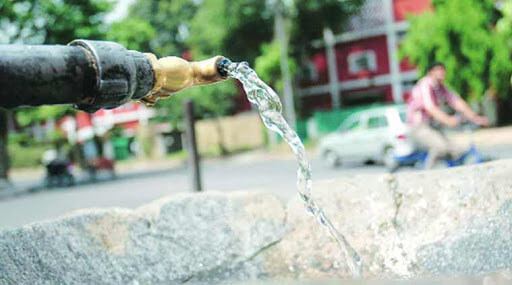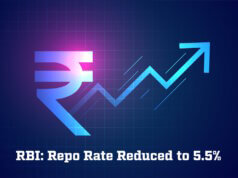 The State Level Scheme Sanctioning Committee (SLSSC) of Uttar Pradesh on 11 November 2021 approved proposals submitted by the state worth Rs 1,882 crore for making provision of tap water connections in rural areas. These schemes will cover a population of 39 lakh in 1,262 villages of 33 districts.
The State Level Scheme Sanctioning Committee (SLSSC) of Uttar Pradesh on 11 November 2021 approved proposals submitted by the state worth Rs 1,882 crore for making provision of tap water connections in rural areas. These schemes will cover a population of 39 lakh in 1,262 villages of 33 districts.
As many as 735 schemes were approved by the committee. As per the approval, tap water connections to be provided to 4.03 lakh rural households of the state.
As on 11 November 2021, 34 lakh (12.9 percent) rural households out of 2.64 crore are getting tap water supply in their homes. In 2021-22, the state plans to provide tap water connections to 78 lakh households.
Under Jal Jeevan Mission (JJM), there is provision for constitution of State Level Scheme Sanctioning Committee (SLSSC) for consideration and approval of schemes to be taken up for making provision of tap water supply to rural households. SLSSC acts as a state level committee to consider water supply schemes/projects, and a nominee of the National Jal Jeevan Mission (NJJM);the government of India is a member of the committee.
The National Jal Jeevan Mission, Ministry of Jal Shakti, has already released Rs 2,400 crore grant–in–aid to Uttar Pradesh during 2021-22.
In 2019-20, the Central government had allocated Rs 1,206 crore to Uttar Pradesh for implementation of Jal Jeevan Mission, which was increased to Rs 2,571 crore in 2020-21.
Union Minister, Jal Shakti, Gajendra Singh Shekhawat, while approving this four-fold increase in allocation in 2021-22, assured full assistance to the state for making provision of tap water supply in every rural home by 2024.
In Uttar Pradesh, there are 2.64 crore rural households in over 97,000 villages, out of which now 34 lakh (12.87 percent) households have tap water supply in their homes. During the launch of Jal Jeevan Mission, only 5.16 lakh (two percent) households had a tap water supply.
In the last 26 months, despite disruptions faced during the COVID-19 pandemic and lockdowns, the state has provided tap water connection to 28.85 lakh (10.92 percent) households. The state aims to make five districts ‘Har Ghar Jal’ in FY22.
To accelerate the pace of JJM implementation, National Jal Jeevan Mission has urged the state to take necessary measures to provide tap water supply to 78 lakh rural households in the state in 2021, for which the state plans to start water supply works in more than 60,000 villages by December 2021.
With the Central allocation of Rs 10,870 crore for 2021 and with an opening balance of Rs 466 crore available with the state government, the state’s matching share of 2021-22 and shortfall in matching the state share of 2020, the total assured fund available for the implementation of JJM in Uttar Pradesh is more than Rs 23,500 crore.
Thus, the government of India is ensuring that there is no paucity of funds for the implementation of this transformational mission in the state of Uttar Pradesh. Further, Rs 4,324 crore have been allocated to Uttar Pradesh as 15th Finance Commission tied grant for water & sanitation to rural local bodies/ PRIs in 2021-22.
There is assured funding of Rs 22,808 crore tied grant for the next five years i.e. up to 2025-26. This huge investment in rural areas of Uttar Pradesh will accelerate economic activities and also boost the rural economy. It will create income-generating opportunities in villages.
PM had laid the foundation stone of piped water supply schemes for the rural areas of seven districts viz Jhansi, Mahoba, Lalitpur, Jalaun, Hamirpur, Banda and Chitrakoot in the Bundelkhand region in February 2019; and in November 2020, for rural drinking water supply projects for Mirzapur and Sonbhadra districts of Vindhyachal region.
These projects will benefit about 18.88 lakh households in 6,742 villages of the region. So far, the physical progress is about 50 percent in these schemes.
The NJJM team suggested including the provision of grey water management through convergence in the water supply schemes as it’s a very important component of the Jal Jeevan Mission. Water testing laboratories are upgraded and open for the general public so that people can test their water samples at a nominal rate.










